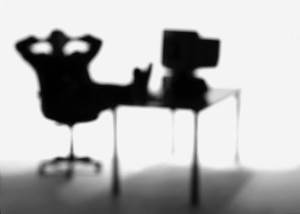“Rest is not idleness, and to lie sometimes on the grass under trees on a summer’s day, listening to the murmur of the water, or watching the clouds float across the sky, is by no means a waste of time.” — John Lubbock, British scientist and politician.
 By nature, most of us in the business world feel driven to prove ourselves—by working hard, generating massive productivity, and moving up through the ranks. Before long, it becomes second nature to work long hours with a tight focus on work, often to the exclusion of other things in life. Some of us willingly sacrifice exercise, a decent diet, vacation, weekends, and even family time to get ahead.
By nature, most of us in the business world feel driven to prove ourselves—by working hard, generating massive productivity, and moving up through the ranks. Before long, it becomes second nature to work long hours with a tight focus on work, often to the exclusion of other things in life. Some of us willingly sacrifice exercise, a decent diet, vacation, weekends, and even family time to get ahead.
But what are we getting ahead for? If you really care about your work, you’ll want to do what’s best and most productive for the organization. This means helping your team advance over the long haul, rather than burning out in an absurdly short period of time. Sure, a flashbulb may be super-bright…but a quiet 40-watt CFC lasts tens of thousands of times longer.
What I’m trying to say is: Give it a rest!
The Global Energy Crisis
Ask the average American worker how they feel at any particular point in time, and if they answer honestly, many will say, “Tired.” We work hard, don’t play hard enough, and don’t take very good care of ourselves. According to recent studies, the average American leaves about nine days worth of Paid Time Off (PTO) on the table at the end of each year, including three vacation days.
For starters, make sure you take your PTO—all of it—if you want to maintain your health, sanity, and productivity. It exists for a reason. Time spent completely away from work helps recharge your energy and brain function, leaving you better able to produce when you return. Some of the most successful people in the world recognize this fact and take it to heart. Marissa Mayer, CEO of Yahoo!, takes weeklong vacations every four months. Richard Branson of the Virgin Group regularly takes “inspiration vacations” that expose him to people and circumstances he rarely encounters in his normal life.
According to Tony Schwartz of the Energy Project, 74% of all employees “are experiencing a personal energy crisis” that precludes them from doing their best on a daily basis. This exhaustion triggers poor work and disengagement from their jobs.
Slow Down to Speed Up
I’ve based my entire practice on teaching people to produce maximum results in minimum time®. It’s a trademark and our company tagline. But in addition to skills such as planning, prioritization, focus, and email management, I show them how even the small things, like taking breaks, can help them accomplish more while maintaining a reasonable work/life balance.
I’m not telling you to kick off your loafers and take a nap under your desk for the rest of the afternoon, but you do need small, regular breaks to help you keep your head in the game. According to studies by researchers at the University of Illinois, maintaining too tight a focus for too long eventually causes your focus to fade. Even if you’re paying close attention, your brain stops registering what you’re studying after a while. You then need a little time off to reset your focus. Humans apparently focus best for periods of 15-45 minutes at a time, though many researchers recommend working in 90-minute bursts before taking a brief break. I prefer 45-minute focus periods, followed by 15 minutes of “recovery,” email processing, quick calls, etc.
That said, if you don’t feel the need for a break, don’t take one unless hours have gone by. You might have to set a timer to make yourself take a break. You should take at least a couple quick breaks and your meal break during the course of the day. Most labor laws mandate these breaks for good reason. According to James A. Levine of the Mayo Clinic, the best kinds of breaks are those that encourage physical movement. So the best break might involve taking a quick walk around the building or getting some sunshine.
Reeducating Yourself
Not taking breaks because you’re trying to impress your superiors with your diligence? I assure you, they won’t be impressed if your productivity drops because you can’t focus, you start making errors from too many hours at work, or if you drop because you’ve worked through too many weekends. When it comes to long-term productivity, a slow, steady burn is always preferable to a burnout. So take your breaks, take your days off, and especially take your vacations—by order of The Productivity Pro®.


